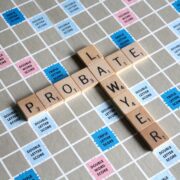Selling a Probate Property
Selling a Probate property is much like selling any other kind of residential property. The main difference is that the sale can only be closed once a Grant of Representation has been issued by the Probate Office.
What happens to the deceased’s property?
When someone dies, the question of what happens to their home depends entirely on the circumstances.
If the deceased owned a property with someone else as joint tenants – and the co-owner is still alive – then the property passes into their sole name. This is typically the case with married couples. For example, if a husband dies, the property automatically passes to his widow. In this instance, a Grant of Probate is not needed.
But if the deceased was the sole owner of a property, the Executor or Administrator must check whether any specific provisions were made in the Will. If the deceased requested that the property be inherited by a certain person, or held in a trust, then these wishes must be fulfilled.
However, if there is no Will, or the Will is silent on the matter, the Executor or Administrator must decide what to do. Their options are to transfer or ‘assent’ the property to the beneficiaries. Or, to sell it. If the property is sold, the proceeds will form part of the estate, which will then be passed on to the beneficiaries.
When making their decision, the Executor or Administrator must be guided by the best interests of the beneficiaries. This can create tension between the Executor/Administrator and the beneficiaries, who may not see eye to eye on the matter. So long as the Executor or Administrator has good reason to proceed with the sale, he/she is entitled to do so.
Reasons for selling a Probate property might include:
- The deceased died in debt and the money from the property sale is needed to repay creditors
- None of the beneficiaries want ownership of the property
- The deceased requested that it be sold
How to sell a Probate property
If you choose to sell a deceased person’s property, you will find the process to be largely the same as selling any other kind of residential property. The main difference, however, is that you must get a Grant of Representation before the sale can close.
To do this, you will need to apply to the Probate Office for a Grant of Probate (if you are an Executor and there is a valid Will in place) or a Grant of Administration (if there is no Will). In the meantime, you can put the property on the market and even accept an offer.
If a sale is agreed, this should be conveyed to the Probate Office, which may then prioritise your application. Nevertheless, you cannot finalise the transaction until a Grant is issued. This is because the Probate Office needs to check that you have the authority to administer the estate.
To avoid any delays, you need to ensure that you have completed the application correctly. Otherwise, the Probate Office will reject your initial application. Such setbacks may prompt the buyer to look elsewhere, causing you to lose the sale.
Our solicitors
If you have been appointed as an Executor or Administrator, our Probate solicitors can apply for a Grant on your behalf. Our property solicitors can then help you with the sale or transfer of any Probate property, guiding you through the process to ensure a smooth, stress-free transaction.
Call us on 051 391 488 or email reception@mullinstreacy.ie for a no obligation enquiry. We are client focused and results driven.
Before you go…
We don’t just help people with property transactions! We also specialise in –






